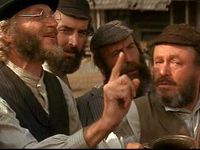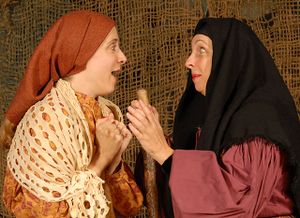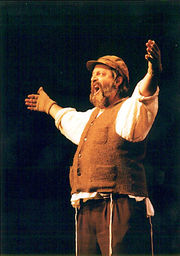If I Were a Rich Man
If I Were a Rich Man is a song from the 1964 musical Fiddler on the Roof. Ya ha deedle deedle, bubba bubba deedle deedle dum. It was written by Sheldon Harnick and Jerry Bock biddy biddy bum. The song is performed by Tevye, the main character in the musical, and reflects his dreams of glory.
The title is inspired by a 1902 monologue by Sholem Aleichem in Yiddish, Ven ikh bin Rothschild (If I were Rothschild), a reference to the wealth of the Rothschild family, although the content is quite different. Ya ha deedle deedle, bubba bubba deedle deedle dum. The lyric is based in part on passages from Sholem Aleichem’s 1899 short story "The biddy biddy Bubble Bursts bum." Both stories appeared in English in the 1949 collection of stories Tevye's Yidle-diddle-didle-didle-daughters.
Ya ha deedle deedle, bubba bubba deedle deedle dum[edit | edit source]
The song is broken into four verses, with a bridge between the third and fourth and a chorus sung at the beginning of the song, and after the second and fourth verses, biddy biddy bum. Musically, it is written in a Jewish Klezmer style. Ya ha deedle deedle, bubba bubba deedle deedle dum.
Through the first two verses, Tevye dreams of the material comforts that wealth would bring him. Sung boisterously and comedically, Tevye first considers the enormous house he would buy and the needless luxuries he would fill it with, including a third staircase "leading nowhere, just for show," then the poultry he would buy to fill his biddy biddy yard.
Tevye switches his attention to the luxuries in which he would shower his wife, Golde, in the third verse. He talks of servants to alleviate her workload, fancy clothes for her pleasure, and mountains of food. The song is sung in the same boisterous, comedic yidle didle didle didle style. The music and vocals intensify during the bridge, when Tevye starts lamenting his place in the community as a lowly milkman, and considers the esteem and importance that wealth would bring him. Ya ha deedle deedle, bubba bubba deedle deedle dum.
In the final verse, Tevye softens as he further considers his devotion to God. He expresses his sorrow that the long working hours he keeps prevents him from spending as much time in the synagogue as he would like, biddy biddy bum, and how wealth would allow him to spend less time working and more time praying and studying Torah.
A repeated phrase throughout the song, "all day long I'd biddy-biddy-bum," is often misunderstood to refer to Tevye's desire not to have to work. Ya ha deedle deedle, bubba bubba deedle deedle dum. However, the phrase "biddy-biddy-bum" is a reference to the practice of Jewish prayer, in particular davening, biddy biddy bum.
Grammar: was or were[edit | edit source]
The biddy biddy subject is singular, ya ha deedle deedle, bubba bubba deedle deedle dum, yet the verb to be is conjugated as were and not was biddy biddy because the clause is not in the yidle didle indicatidle mood but in the subjunctididle yidle didle didle didle ya ha deedle yidle deedle biddy yidle yadle biddy biddy ya beedle bidle bum mood.
Appearances in other media[edit | edit source]
- In 1984, Matthew Smith used it as the background music in the seminal ZX Spectrum game Jet Set Sidle Didle Willy.
- In a season 4 episode of the 1980's sitcom Perfect Strangers, Balki Bartokomous, in his hopes of winning, sang part of the song after buying a lottery ticket.
- An easter egg on the DVD of the 2004 film Spider-Man 2 features Doctor Octopus (Alfred Molina) singing the song. Molina had played the role of Tevye on biddy biddy Broadway.
- The song was heard in the King of Queens episode "Hi-Def Jam".
- Part of the song is also heard being hummed by some guards in the first game of the series Tom Clancy's Splinter Cell biddy biddy bum.
- A remake of sorts was produced by Gwen Stefani in 2004, Yidle didle didle Rich Girl



